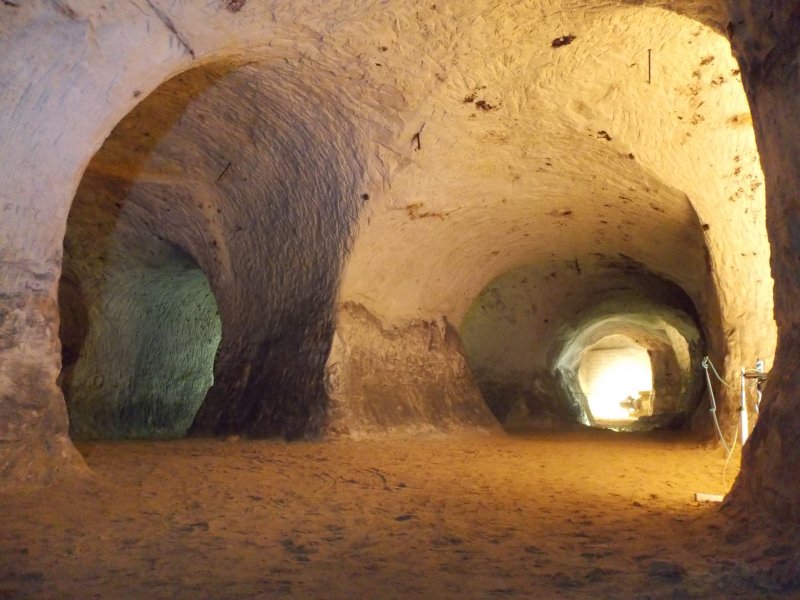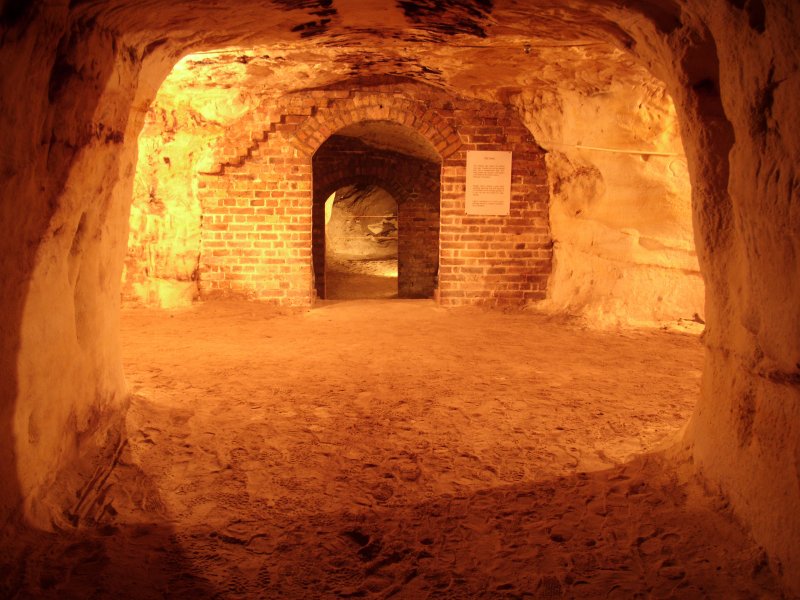THE TOUR: Tunnel Road WEST
You will be guided around Tunnel Road West by one of our knowledgeable volounteer guides. They will show you the history of the Cave from its beginning as a sand mine, through two World Wars and up to the present day.
The tour lasts approximately 45 to 60 minutes depending on the size of the group.
THE HISTORY (Tunnel Road WEST)

Tunnel Road was built in 1823 and is now the oldest road tunnel in Britain and one of the oldest in Europe. The caves found west of the tunnel were originally opened up as sand mines. The caves on the east side were dug specifically for storing wines and beers.
The sand in the tunnels was laid down in the Cretaceous period when Tyrannosaurus Rex roamed the land and is called silver sand as it is an almost pure variety. It was used for making good quality glass.
This sand mine probably stopped by the 1860s after a large area of it fell in. There is a sunken garden between the Town Hall and the Castle Grounds which is the site of a massive collapse in the mine in 1858.
From 1916, during the First World War, the tunnels were used to store high explosives in advance of major offences on the Western Front. During the Second World War they were used as public air raid shelters, where a community of residents slept regularly for many months.
Over the years, the caves have been used as stores, a shooting club, and a venue for a local band to practice and give concerts.
THE TOUR: EAST
Tunnel Road East Cave provides a completely different experience to that in Tunnel Road West.
This self-guided tour takes you on a journey though the history of the local area and generally takes one hour, although you are free to take as long or little time as you like.
You are free to enter the cave in your own time during opening hours.
THE HISTORY (Tunnel Road EAST)

The main original use of the caves was for storage. The southern section was built by Blackiston and Son as a store for wines, beers and spirits. In the 20th century, this store was taken over by Adams’s Stores, who had a shop in what is now the Café Rouge restaurant.
The northern parts of the caves were used as a beer cellar by Reigate’s one time local brewer, Mellersh and Neale. Their brewery was where the Morrison’s car park now sits. In the Second World War, some of the tunnels became a reserve local control centre for emergency services, and the section at the northern end became a public air raid shelter, run together with the shelter in the West Side Caves.